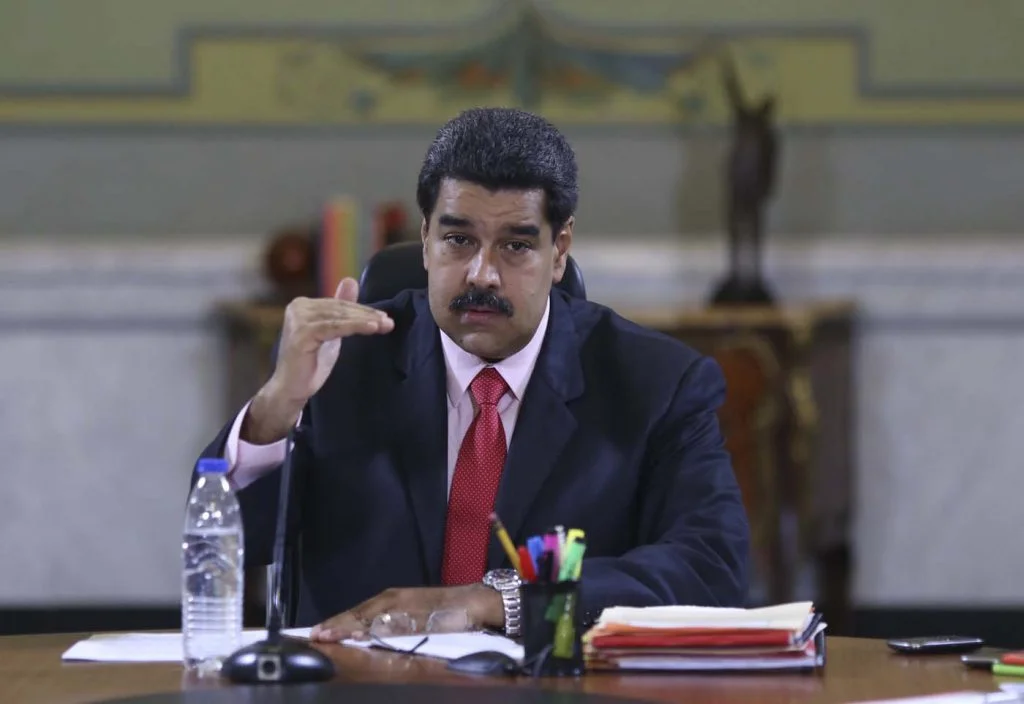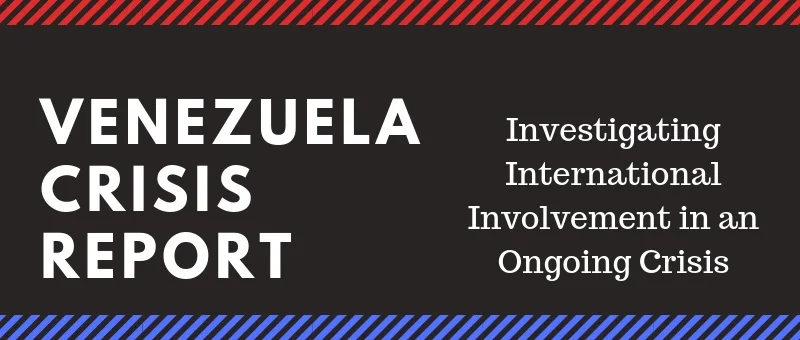(U) China: Diplomacy Upgrade with Venezuela Bolsters Chinese Influence in Latin America
(U) We assess the recent diplomatic relations upgrade between China and Venezuela will likely bolster China’s expansion of economic and political influence in Latin America, challenging U.S. authority in the region. Venezuelan President Nicolas Maduro will likely be used as a “mouthpiece” by Beijing to promote political rhetoric. This relations upgrade indicates a shift from U.S.-led political liberalism in the Global South towards authoritarian powers such as China and Russia.
On 13 September, China upgraded its public relationship with Venezuela to an “all weather partnership” --a label reserved for a select few of its closest diplomatic partners. The two nations signed a series of bilateral agreements in the areas of the economy, trade, and education, released a joint statement announcing their partnership according to multiple sources [1] .
The 13 September joint statement praises China’s efforts to develop the Global South and support developing countries. In early 2023, Maduro proposed the establishment of an economic bloc of Latin American and Caribbean countries that would have “close ties” to China and Russia. Since coming to power in 2018, Maduro has consistently promoted China’s initiatives globally and in Latin America according to multiple sources [2].
U) China and Venezuela in September announced they have upgraded diplomatic ties to an “all weather” partnership and signed a series of bilateral documents for Belt and Road projects and political and economic cooperation. September’s bilateral cooperation agreement between Beijing and Caracas signifies strengthened economic and political influence in Latin America challenging U.S. hegemony in the region. China’s past political actions in Latin America strongly suggest it seeks economic and political dominance over the region.
In a joint statement, Venezuela reaffirmed its support for China’s Belt and Road Initiative (BRI) Global Development Initiative, Global Security Initiative and Global Civilization Initiative to boost global trade infrastructure and invited Chinese partners into Venezuela to strengthen Venezuela’s struggling economic and political climate. In the joint statement, Caracas reiterated its desire to become an official member of BRICS, which China warmly acknowledges according to multiple sources [3].
China is one of Latin America’s largest trading partners and a leading country in foreign direct investment through energy and infrastructure throughout Latin America. China’s global infrastructure project, BRI, entered its second decade on 17 October with 21 Latin American and Caribbean countries signed on through a memorandum of understanding. The BRI is a vital tool for China to counter U.S. influence in the Western Hemisphere and the U.S.-led international order according to multiple sources [4].
(U) We assess the September’s diplomatic relations upgrade between China and Venezuela to “all weather partnership” will likely enable China to expand its economic and political influence in Latin America. Beijing and Caracas will likely work to further strengthen their newly upgraded diplomatic ties and interact in the media, using Maduro as a mouthpiece to convey messaging in line with Chinese foreign policy positions.
China will likely continue seeking to engage in diplomatic relations with other countries in the region. The diplomatic relations upgrade with Venezuela enables Beijing to influence and recruit other Latin American countries to engage in closer relations with China.
Maduro has the capability to promote China’s agenda in his own engagements with other Latin American countries, acting as a political mouthpiece for Beijing. In addition, included in the 13 September joint statement, Venezuela rejected Taiwan’s sovereignty, objected to international intervention in internal Chinese affairs, and denied reports of protests in Hong Kong and human rights violations in Xinjiang [5]. This signifies and example of China using Caracas to selectively promote pro-CCP narratives to the region and international community.
[1]
The Ministry of Foreign Relations of the Bolivarian Republic of Venezuela. (2023). “Joint Statement between the People’s Republic of China and the Bolivarian Republic of Venezuela on the establishment of the All-Weather Strategic Partnership.” The Ministry of Foreign Relations of the Bolivarian Republic of Venezuela official site.
Orr, B., Lee, L., & Cao, E. (2023). China, Venezuela sign agreements on economy, trade, tourism. Reuters.
“China upgrades relationship with Venezuela to ‘all weather’ partnership”. (2023). APNews.
“China’s Xi says ‘upgrading’ Venezuela relations after meeting Maduro”. (2023). Al Jazeera.
[2]
The Ministry of Foreign Relations of the Bolivarian Republic of Venezuela. (2023). “Joint Statement between the People’s Republic of China and the Bolivarian Republic of Venezuela on the establishment of the All-Weather Strategic Partnership.” The Ministry of Foreign Relations of the Bolivarian Republic of Venezuela official site.
Yadav, R. (2023). Latin American trade bloc with Russia and China can be a game-changer. TFIGlobal.
“Maduro Mulls Creating New Regional Bloc Allied to Russia and China”. (2023). Al Manar.
Desheng, C. (2023). China, Venezuela elevate ties to all-weather partnership. Asian News Network.
[3]
The Ministry of Foreign Relations of the Bolivarian Republic of Venezuela. (2023). “Joint Statement between the People’s Republic of China and the Bolivarian Republic of Venezuela on the establishment of the All-Weather Strategic Partnership.” The Ministry of Foreign Relations of the Bolivarian Republic of Venezuela official site.
“Venezuelan FM says supports China's global initiatives on development, security, civilization”. (2023). Xinhua.
Uddin, I. (2023). China welcomes Venezuela’s intention to join BRICS. Anadolu Ajansi
[4]
Roy, D. (2023). China’s Growing Influence in Latin America. Council on Foreign Relations.
China Regional Snapshot: South America. (2022). Committee on Foreign Affairs
Sacks, D. (2023). China’s Belt and Road Initiative Enters Its Second Decade: Which Leaders Went to Beijing to Celebrate with Xi Jinping?. Council on Foreign Relations.
[5]
The Ministry of Foreign Relations of the Bolivarian Republic of Venezuela. (2023). “Joint Statement between the People’s Republic of China and the Bolivarian Republic of Venezuela on the establishment of the All-Weather Strategic Partnership.” The Ministry of Foreign Relations of the Bolivarian Republic of Venezuela official site.






